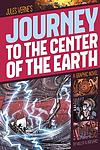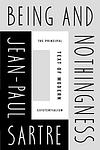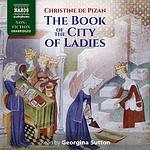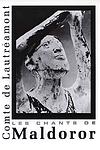The Greatest French, Austrian Books of All Time
Click to learn how this list is calculated.
This list represents a comprehensive and trusted collection of the greatest books. Developed through a specialized algorithm, it brings together 305 'best of' book lists to form a definitive guide to the world's most acclaimed books. For those interested in how these books are chosen, additional details can be found on the rankings page.
Genres
Countries
Date Range
Reading Statistics
Click the button below to see how many of these books you've read!
Download
If you're interested in downloading this list as a CSV file for use in a spreadsheet application, you can easily do so by clicking the button below. Please note that to ensure a manageable file size and faster download, the CSV will include details for only the first 500 books.
Download-
51. Tractatus Logico-Philosophicus by Ludwig Wittgenstein
"Tractatus Logico-Philosophicus" is a seminal work in analytic philosophy that presents a comprehensive picture of reality and our knowledge of it. The book outlines a logical structure for all scientific discourse, arguing that language and its logical structure are the primary tools for understanding and representing the world. It proposes that all philosophical problems arise from misunderstandings of the logic of language, and that all meaningful propositions are pictures of states of affairs in the world. The book concludes with the famous line "Whereof one cannot speak, thereof one must be silent," suggesting that things that cannot be spoken about logically should not be spoken about at all.
The 587th Greatest Book of All Time -
52. The Immoralist by André Gide
"The Immoralist" is a novel that explores the journey of a man who, after a near-death experience, indulges in hedonistic and selfish behavior, rejecting societal norms and moral constraints. The protagonist, a scholar, embarks on a journey of self-discovery and self-indulgence after being diagnosed with tuberculosis. His pursuit of physical and sensual experiences leads him to abandon his wife and career, leading to a life of isolation and self-destruction. The book delves into themes of morality, freedom, and the human condition.
The 589th Greatest Book of All Time -
53. Cyrano de Bergerac by Edmond Rostand
"Cyrano de Bergerac" is a classic French play that tells the story of a nobleman named Cyrano, who is a talented poet and swordsman but has a very large nose. Despite being deeply in love with his cousin Roxane, Cyrano doesn't believe she could ever love him because of his appearance, so he helps his friend Christian woo her instead. Cyrano writes love letters to Roxane on behalf of Christian, and Roxane falls in love with the man she believes Christian to be. The story is a tragic tale of unrequited love, selflessness, and the power of inner beauty.
The 590th Greatest Book of All Time -
54. Journey to the Center of the Earth by Jules Verne
This science fiction novel revolves around a German professor who believes there are volcanic tubes leading to the center of the Earth. He, his nephew, and their guide embark on an adventurous expedition down an Icelandic volcano into the Earth's core. They encounter prehistoric animals, natural disasters, and otherworldly phenomena along their journey. The expedition is both thrilling and dangerous, testing the limits of their courage and survival skills.
The 594th Greatest Book of All Time -
55. Jacques the Fatalist and His Master by Denis Diderot
The novel follows the adventures of Jacques and his master, exploring their philosophical discussions on life, fate, and free will. Jacques believes that everything that happens is predestined, while his master argues for the existence of free will. Their journey is filled with comical and absurd situations, unexpected twists, and intriguing stories within stories. The narrative structure is innovative and playful, often breaking the fourth wall and questioning the nature of storytelling itself.
The 628th Greatest Book of All Time -
56. Being and Nothingness by Jean Paul Sartre
This philosophical work delves into the concept of existentialism and phenomenology, offering an in-depth analysis of human consciousness and existence. The author argues that we are all essentially free and responsible for our actions, and that we construct our own identities through our actions and interactions with others. The book also explores the idea of 'nothingness' and 'bad faith', suggesting that we often deny our freedom and hide from the responsibility of our actions, leading to a life of inauthenticity.
The 630th Greatest Book of All Time -
57. Night by Elie Wiesel
This book is a memoir of the author's experiences during the Holocaust, specifically in the Auschwitz and Buchenwald concentration camps. The narrative focuses on the relationship between a father and son under the most extreme circumstances, the loss of faith in God, humanity, and in each other, and the horrifying reality of the systematic genocide of six million Jews during World War II. The book is a poignant and stark examination of the depths of human evil and the enduring power of hope and survival.
The 635th Greatest Book of All Time -
58. Bouvard et Pécuchet by Gustave Flaubert
"Bouvard et Pécuchet" is a satirical novel that chronicles the lives of two Parisian copy clerks, Bouvard and Pécuchet, who decide to retire in the countryside after unexpectedly inheriting a fortune. Their attempts to become gentlemen farmers are thwarted by a series of comical failures. The pair then embarks on a quest for knowledge in various fields such as medicine, literature, politics, and religion, but their efforts lead to more confusion and absurdity. The novel is a critique of intellectual pretensions and a commentary on the futility of human endeavor.
The 640th Greatest Book of All Time -
59. Phèdre by Jean Racine
"Phèdre" is a classic French play that explores themes of love, guilt, and retribution. The story revolves around the tragic heroine, Phèdre, who falls passionately in love with her stepson, Hippolytus. Battling with her forbidden desires, she eventually confesses her feelings to Hippolytus, leading to a series of devastating events. The play is renowned for its exploration of human emotions, moral dilemmas, and the destructive power of uncontrolled passion.
The 662nd Greatest Book of All Time -
60. The Fall by Albert Camus
The novel is narrated by a successful Parisian lawyer who has moved to Amsterdam after a crisis of conscience. He confesses his past misdeeds and moral failings to a stranger in a bar, revealing his growing self-loathing and disillusionment with the hypocrisy and shallowness of his former life. His confessions are a reflection on guilt, innocence, and the nature of human existence. The protagonist's fall from grace serves as a critique of modern society's moral failings and the individual's struggle with guilt and redemption.
The 667th Greatest Book of All Time -
61. Thérèse Raquin by Émile Zola
"Thérèse Raquin" is a novel about a young woman who is unhappily married to her cousin, a sickly and selfish man. She embarks on a passionate and destructive affair with one of her husband's friends, leading to a series of tragic events. The novel explores themes of lust, guilt, and the psychological consequences of such immoral actions, set against the bleak backdrop of the Parisian underworld.
The 684th Greatest Book of All Time -
62. The Book of the City of Ladies by Christine De Pizan
"The Book of the City of Ladies" is a classical work in which the author, through allegorical characters, builds an imaginary city for women to illustrate their significant contributions to society. The book is a defense of women, arguing against the popular notion of the time that women were inferior to men. It showcases the author's deep knowledge of the past, referencing numerous notable women from history and mythology, emphasizing their virtues, intelligence, and moral fiber.
The 700th Greatest Book of All Time -
63. The Sleepwalkers by Hermann Broch
"The Sleepwalkers" is a trilogy that explores the psychological transformation and moral decay of German society between 1888 and 1918. The narrative follows three main characters: Joachim von Pasenow, a romantic military officer; August Esch, a pragmatic bookkeeper; and Claus von Pasenow, an intellectual and World War I soldier. The book uses these characters to depict the shift from a stable, traditional society to a modern, aimless one, examining the individual's struggle with societal change and the disintegration of values.
The 877th Greatest Book of All Time -
64. Against Nature by J. K. Huysmans
The novel follows the life of an eccentric aristocrat who retreats from society to live in isolation, dedicating himself to the pursuit of excessive aestheticism. He surrounds himself with art, literature, and music, and indulges in sensual pleasures and extravagant interior decoration. The protagonist's obsession with artifice over nature and his quest for absolute individualism and self-gratification are explored, reflecting the decadent movement of the late 19th-century France.
The 716th Greatest Book of All Time -
65. Stories of Guy de Maupassant by Guy de Maupassant
This book is a collection of short stories from a renowned French author, known for his masterful storytelling and keen observations of human nature. The narratives delve into various aspects of life, from love and loss to morality and deception, showcasing the author's ability to capture the complexity of human emotions and experiences. His stories often carry a cynical tone, reflecting the harsh realities of life, and are noted for their surprise endings.
The 719th Greatest Book of All Time -
66. Zazie in the Metro by Raymond Queneau
A young, precocious girl named Zazie comes to Paris to stay with her flamboyant uncle, a professional female impersonator. She is obsessed with riding the Metro, but a strike thwarts her plans. As she explores the city on her own, she encounters a variety of eccentric characters, gets into mischief, and ultimately causes chaos in the city. The novel is a humorous and satirical look at Parisian life, filled with word play and surreal elements.
The 734th Greatest Book of All Time -
67. Nadja by André Breton
The novel is a surrealistic exploration of the narrator's relationship with a young woman named Nadja. As the narrator becomes infatuated with Nadja, their encounters become more and more dreamlike. The book delves into the nature of reality and the power of the subconscious mind, blurring the lines between dreams and reality. It is also a commentary on the socio-political climate of Paris in the early 20th century, showcasing the author's views on art, life, and love.
The 758th Greatest Book of All Time -
68. Letters to a Young Poet by Rainer Maria Rilke
This book is a collection of 10 letters written by a renowned poet to a young aspiring poet, offering advice and guidance on matters of life, love, and the pursuit of poetry. The author encourages the young poet to look inward for inspiration and to embrace solitude as a means of self-discovery. He also emphasizes the importance of patience, personal growth, and the necessity of experiencing life's hardships to truly understand and depict the human condition in poetry.
The 800th Greatest Book of All Time -
69. The Human Comedy by Honoré de Balzac
"The Human Comedy" is a series of interconnected novels and stories that depict the lives, ambitions, and failures of a wide range of characters in French society during the first half of the 19th century. The series explores the complexities of human nature and society, offering a panorama of French life from the aristocracy to the working class. It presents a detailed and vividly realistic portrayal of the social, political, and economic life of the time.
The 809th Greatest Book of All Time -
70. Mythologies by Roland Barthes
This book is a collection of essays that explore the layers of cultural and societal meanings that are imbued in everyday objects, activities, and phenomena. The author decodes the symbols and signs embedded in things as varied as wrestling, soap detergents, toys, and even the face of Greta Garbo. The book is a pioneering exploration of semiotics, the study of signs and symbols, and it challenges readers to question and understand the cultural connotations and ideologies that are presented as natural or given in our everyday lives.
The 811th Greatest Book of All Time -
71. Manon Lescaut by Abbe Prevost
"Manon Lescaut" is a tragic novel about a young man of good family who sacrifices everything for his passionate love for a beautiful but deceitful woman, Manon. Despite his sincere love for Manon, she continually betrays him for wealth and comfort, leading to their downfall. The story is a cautionary tale about the destructive power of obsessive love and the tragic consequences of a lack of moral strength and self-discipline.
The 821st Greatest Book of All Time -
72. Tristes Tropiques by Claude Lévi-Strauss
"Tristes Tropiques" is a blend of autobiography, travel literature, and anthropology by a renowned scholar. The book is a recounting of the author's travels and anthropological work, primarily in Brazil, in the 1930s. It provides a critical and philosophical reflection on his experiences and observations, offering insights into indigenous tribes like the Nambikwara and Tupi-Kawahib, and exploring themes of cultural change, the nature of anthropology, and the author's own disillusionment with Western civilization.
The 824th Greatest Book of All Time -
73. The Case of Comrade Tulayev by Victor Serge
"The Case of Comrade Tulayev" is a political novel set in the Stalinist era of the Soviet Union. The story begins with the murder of a high-ranking Soviet official, Comrade Tulayev, which sets off a series of events leading to the arrest and execution of innocent people. It provides an in-depth exploration of the paranoia, fear, and injustice that characterized Stalin's regime, showing the human cost of political purges and the absurdity of the bureaucratic system.
The 826th Greatest Book of All Time -
74. The Royal Game by Stefan Zweig
"The Royal Game" is a gripping novella about a man who, while in solitary confinement by the Nazis, steals a book of past chess games and plays them all in his mind to keep his sanity. Once freed, he becomes a chess master but his mental state is fragile. On a cruise ship, he is challenged to a game by the reigning world champion, leading to a psychological battle that pushes him to the brink of madness.
The 833rd Greatest Book of All Time -
75. Maldoror (Les Chants de Maldoror) by Comte de Lautréamont
"Maldoror (Les Chants de Maldoror)" is a poetic novel that explores the dark and surreal world of the protagonist, Maldoror, a figure of absolute evil who rejects God and conventional morality, often expressing a violent hatred towards humanity. The book is composed of six cantos filled with bizarre and often shocking imagery, which depict Maldoror's experiences in a world that he perceives as chaotic and indifferent. The novel is known for its vivid and often disturbing exploration of the human condition and its subversion of traditional literary norms.
The 869th Greatest Book of All Time
Reading Statistics
Click the button below to see how many of these books you've read!
Download
If you're interested in downloading this list as a CSV file for use in a spreadsheet application, you can easily do so by clicking the button below. Please note that to ensure a manageable file size and faster download, the CSV will include details for only the first 500 books.
Download























